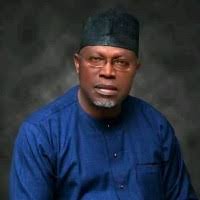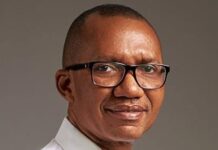Nigeria’s Economic Recovery: Shifting from impatient idealism to patient pragmatism, by Arch Baba Isimi FNIA
In Defense of Reason
Impatient idealism a belief in high ideals or perfect solutions combined with a sense of urgency or frustration about the pace of progress. Idealists often envision a better world but may become easily disillusioned when reality doesn’t meet their expectations.
Patient Pragmatism, emphasises a practical and realistic approach to problems, understanding that change takes time and often requires compromise. Pragmatists focus on achievable goals and incremental progress rather than holding out for perfect solutions
Economic Realism
This shift implies moving from a perspective that seeks immediate, ideal outcomes to one that values steady, practical efforts and recognizes the complexities of real-world situations.
Nigeria’s economic recovery after a near collapse cannot be achieved with a mere wave of a magic wand. It is a process that requires the implementation of appropriate policy instruments and will take time for adjustments to yield tangible effects on overall economic growth and create opportunities.
Consistent evaluation and adjustments are essential along the trajectory of our economic restructuring plans—whether they be short, medium, or long-term. It is important to remember the Central Bank of Nigeria’s past challenges in economic management. Nigeria will not emerge from this period of economic difficulty overnight; substantial readjustments are necessary.
This government has only completed one budget cycle initiated by them and is entering a second. A realistic appraisal of policy effectiveness can only be fairly made after at least three budget cycles. It is disheartening to see some news and social media portrayals vilifying the current administration with self-serving rhetoric aimed at influencing the gullible and those with personal agendas against the APC government.
While I acknowledge the valid concerns regarding the state of the economy, a point of diverge is on the timeline for evaluating the effectiveness of the current government’s policy initiatives. Some may hastily label these efforts as failures, it is obvious to keen observers of economic restructuring that one budget cycle is insufficient to rectify a long-term economic model that has relied on the illusion of wealth and a mono-product economy—specifically, crude oil, which is experiencing a global decline.
A critical aspect of Nigeria’s economic challenges is the consumption complex fostered by a class of unproductive elites. This group has become conditioned by a national doctrine of sharing revenues derived from our single natural resource base—oil. Many in this elite class contribute little to the economy’s productive capacity, yet they operate within a framework that instills a sense of entitlement and a belief that wealth should be shared among Nigerians.
This culture of entitlement has perpetuated an unproductive environment marked by conspicuous consumption and a laissez-faire attitude. Instead of fostering innovation and productivity, the focus remains on the redistribution of oil revenues, further entrenching a cycle of dependency.
We cannot continue with an import-dependent economic model that fosters this consumptive mindset. Nigeria must reject this complacency and confront the harsh economic realities we face. It is time to reset our mindset and work towards a prosperous future for our nation, promoting a culture of productivity over entitlement and fostering an economy that thrives on diverse contributions rather than mere consumption.
Nigeria must reject this complacency and confront the harsh economic realities we face. It is time to reset our mindset and work towards a prosperous future for our nation.
Baba Isimi, FNIA, an architect, public affairs commentator and the Lead Convener National Integration Group, writes from Abuja.
Disclaimer
The opinions and views expressed in this article belong solely to the original author and other contributors. They do not necessarily reflect the official policy or opinions of Neptune Prime.
Follow the Neptune Prime channel on WhatsApp:
Do you have breaking news, interview request, opinion, suggestion, or want your event covered? Email us at neptuneprime2233@gmail.com





